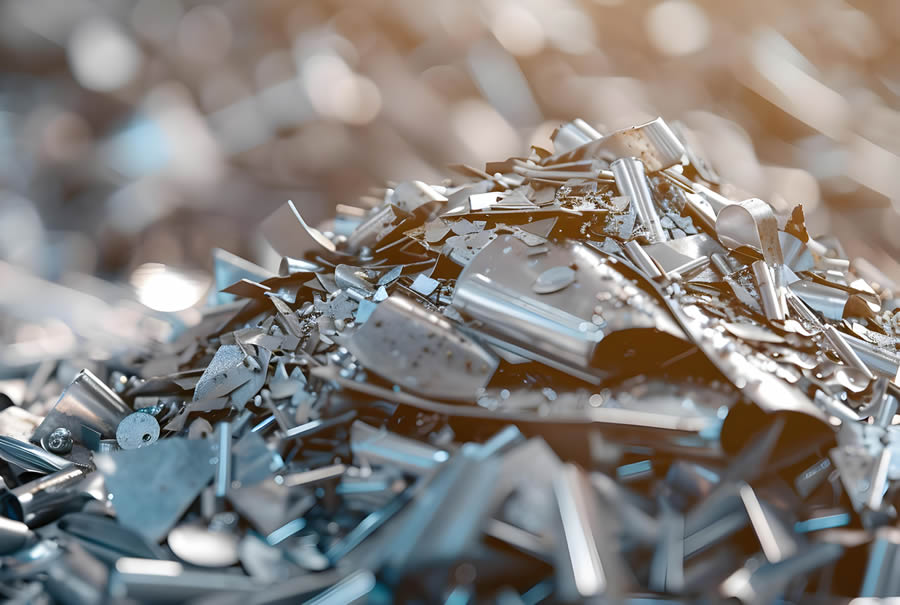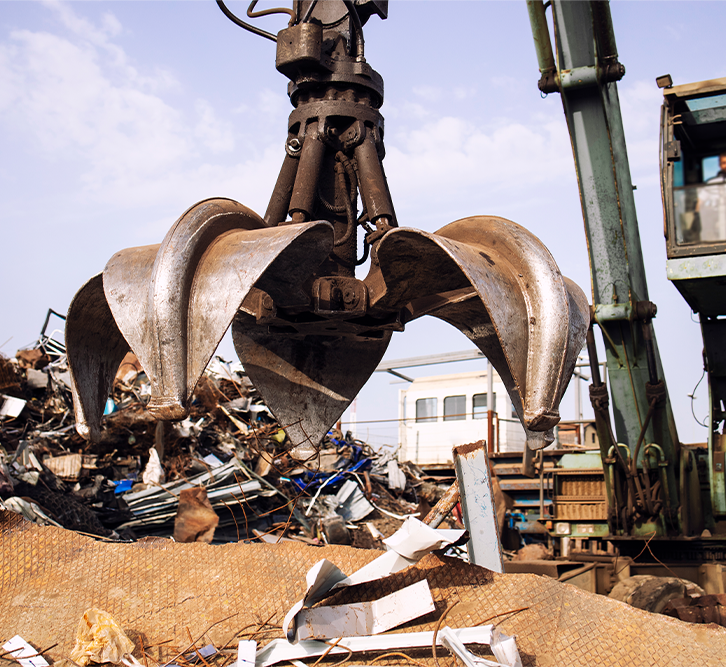Scrap Metal Recycling
With resources becoming scarcer and the demand for sustainable practices growing, scrap metal recycling is one of the most effective ways to contribute to environmental conservation while earning extra income. Whether you’re clearing out your garage or running a business with leftover metal materials, knowing how to sell your scrap metal effectively can make a big difference. At Just Scrap It, we are committed to helping you maximize the value of your scrap metal while making the recycling process as seamless as possible.
Top Tips for Sorting Scrap Metal Efficiently
One of the most critical steps in metal recycling is sorting your materials correctly. Proper sorting ensures you get the best price from a buyer and speeds up the process when you finally bring in your haul. Here are some top tips to help you sort your scrap metal efficiently:
- Separate Ferrous and Non-Ferrous Metals: The first and most important step is to distinguish between ferrous and non-ferrous metals. Ferrous metals are magnetic and usually less valuable. Non-ferrous metals are non-magnetic and typically fetch higher prices. A magnet can help you quickly sort these metals.
- Group Similar Metals Together: Within the ferrous and non-ferrous categories, further sort your metals by type. For example, separate copper wires from copper pipes and aluminum cans from aluminum sheets. This additional step can help you get the best rates from a scrap metal buyer.
- Remove Non-Metallic Materials: To maximize the value of your scrap metal, remove any non-metallic materials attached to your metals, such as plastic or rubber. For instance, stripping insulation from copper wires can increase their value.
- Keep an Eye on Market Prices: The value of scrap metal fluctuates with market conditions. Staying informed about current prices can help you decide which time is best to sell your scrap metal for cash.
Common Types of Scrap Metal and Their Value
Understanding the different types of scrap metal and their relative value can help you make informed decisions when it comes to scrap recycling. Here are some of the most common metals you’re likely to encounter:
- Copper: Often found in plumbing pipes, electrical wires, and some roofing materials, copper is one of the most valuable types of scrap metal. It’s highly sought after by scrap metal buyers because of its conductivity and resistance to corrosion.
- Aluminum: Lightweight and corrosion-resistant, aluminum is commonly found in beverage cans, window frames, and automotive parts. While not as valuable as copper, it’s still worth collecting, especially in large quantities.
- Brass: Brass is typically found in plumbing fixtures, decorative items, and electrical components. It’s another high-value scrap metal that can bring in a good return.
- Steel: Steel is one of the most abundant and widely recycled metals. Found in everything from appliances to construction materials, steel is less valuable per pound but is worth collecting due to its volume.
- Stainless Steel: Stainless steel, which is often used in kitchenware and medical instruments, contains chromium, which adds to its value. It’s more valuable than regular steel and is worth sorting separately.
The Environmental Benefits of Scrap Metal Recycling
Beyond the financial rewards, recycling plays an essential role in protecting our environment. Here’s how:
- Reduces Mining and Conserves Resources: Mining for new metal ores is an energy-intensive process that depletes natural resources. Recycling decreases the need for mining and conserves precious resources like iron ore, bauxite, and copper.
- Lowers Energy Consumption: Recycling metal consumes less energy than producing new metal from raw materials. For example, recycling aluminum saves up to 95% of the energy required to produce it.
- Reduces Landfill Waste: Metals that aren’t recycled often end up in landfills, where they take up space and can potentially leach harmful substances into the soil and groundwater. Scrap recycling keeps these materials out of landfills and reduces environmental pollution.
- Supports a Circular Economy: Recycling scrap metal supports the idea of a circular economy, where materials are continuously reused and recycled rather than being discarded after a single use.
How to Identify and Avoid Hazardous Scrap Metal
While most scrap metals are safe to handle, some can pose health risks if not dealt with properly. It’s important to identify and avoid hazardous scrap metal to protect yourself and others:
- Lead: Lead is found in car batteries and some pipes. Lead exposure can cause serious health issues, so it’s important to handle it with care and wear protective gear when dealing with lead-containing materials.
- Asbestos: Often found in older buildings, asbestos was used in insulation, roofing, and flooring materials. Asbestos fibers are extremely hazardous when inhaled, so if you come across any materials that might contain asbestos, it’s best to leave them alone and call in professionals.
- Mercury: Mercury is found in some older thermostats, fluorescent lights, and electrical switches. It’s highly toxic, and even small amounts can be dangerous. If you encounter mercury-containing items, handle them with extreme caution and dispose of them according to local regulations.
- Radioactive Metals: Occasionally, scrap yards may come across radioactive materials, often from industrial or medical equipment. These metals are extremely hazardous, and if you suspect that you’ve found something radioactive, contact authorities immediately and avoid handling it.
Why Choose Just Scrap It for Your Scrap Metal Needs?
At Just Scrap It, we understand the importance of maximizing your earnings and ensuring that the recycling process is as safe and environmentally friendly as possible. Are you ready to turn in your scrap metal for cash? Bring your sorted metals to Just Scrap It today.

